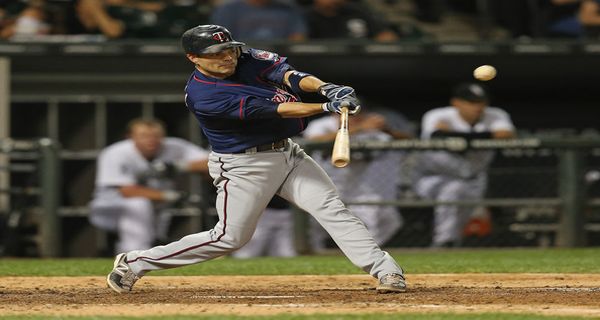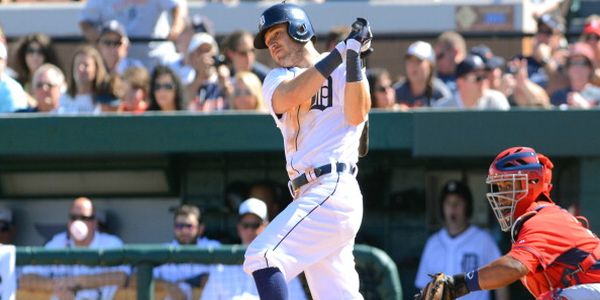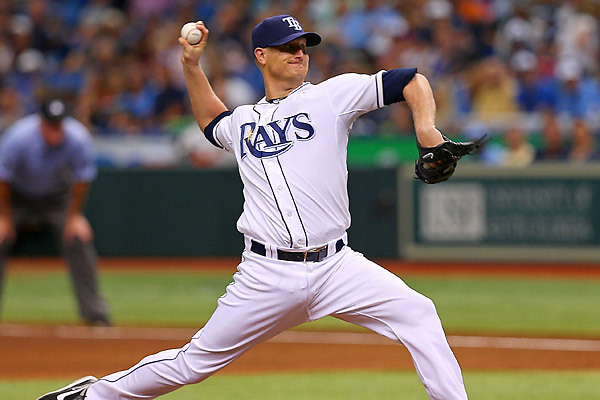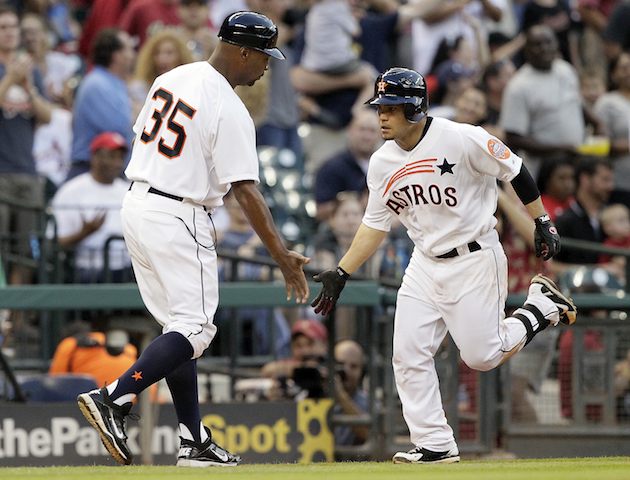Rotters and Sleepers: Second Base

We’ve only been making Scott Barzilla’s Total Run Index articles available to our premium subscibers, those who have the Front Office package. But we wanted to give everyone else a peek at Scott’s work. Check it out! And sign up for the Front Office package here.
One of the things I love about total run index is that I can learn a thing or two by my own numbers. Primarily, sometimes the players you think are sleepers aren’t sleepers at all. They aren’t rotters either. You just misunderstood what they were in the first place. Perception is often reality in fantasy sports, but if you can get a real handle of where guys are before your draft you can come out ahead.
In simple terms, often players produce numbers that are outside the norm because of good or bad luck on batted ball data. Sometimes, an extreme home ballpark one way or the other masks performance in a significant way. TRI has a way of wading through that and giving you a look at the player pimples and all. At that point, you might notice that a player’s performance is really not all that different in real terms than it has been in the past.
So, when we pick our six “sleeping candidates” we look at the perception of their performance and not necessarily the reality of it. That involves choosing players that have been active for at least four seasons so we can get a long enough track record to go on. You’ll thank me later.
Ian Kinsler— Texas Rangers
- 2012: +3.3
- 2011: +25.2
- 2010: +10.7
- 2009: +11.9
- 2008: +24.5
Kinsler is one of those players that is constantly underrated because he usually contributes in all three total run index categories (hitting, fielding, and base running). Fielding is not something we concern ourselves with here, but it is a concern for Kinsler. There are plans in the works to move Kinsler to first base to make room for Jurickson Profar.
Up until a year ago that would have not been a viable plan because Kinsler was also a brilliant defender at second base. 2012 wasn’t kind to Kinsler across the board and so the days are limited for him to prove his worth at the position. He is viable as an offensive player at second base and should return to the +15.0 run category, but if he is moved to first base next season he will become fantasy DOA. Grade: Sleeper
Dustin Pedroia— Boston Red Sox
- 2012: +8.6
- 2011: +23.3
- 2010: +9.8
- 2009: +13.5
- 2008: +23.2
It seems like an eternity ago since Pedroia was the Rookie of the Year and AL MVP in back to back seasons. Ironically, TRI had him better offensively in 2011 than he was during his MVP season (by the slimmest of margins). 2012 was a nightmare in all of Boston as the season seemed to go off the rails before the season even began.
Thus, we come to a fork in the road where we must choose between tangibles and intangibles. The tangible evidence shows that Pedroia has been more ordinary in three out of the last four seasons as compared to his award winning past. The intangibles would include references to the tyrant that was Bobby Valentine and the fact that he is gone. The truth is probably somewhere in between. Grade: Sleeper
Brandon Phillips— Cincinnati Reds
- 2012: +3.9
- 2011: +15.4
- 2010: +5.7
- 2009: +3.8
- 2008: +0.1
The whole reason the replacement level player was invented was to highlight the value of the average player. Phillips is slightly above average, but he is not the good player people think he is and outside of 2011 he never has been a good player. Sometimes, we get confused into thinking a player is good and then sign him to a long-term deal. Not every organization has embraced advanced metrics yet.
Phillips isn’t rotting in the traditional sense because his production has stayed rather steady outside of 2011. There is value to that in the real world and there is value to that in the fantasy world. The key is to make sure you don’t get cornered into overdrafting an above average player. Grade: Rotter
Rickie Weeks— Milwaukee Brewers
- 2012: +3.3
- 2011: +10.4
- 2010: +21.6
- 2009: +3.2
- 2008: +6.4
Rickie Weeks is a throwback to another time of fantasy baseball. He is the ultimate two-way threat at a position that normally doesn’t have them. If you are playing in a traditional 5×5 league then he still has some value for you. When you add in the component of walks/OBP then he kills you in two ways (AVG and OBP) rather than one (AVG).
In one of the more complex leagues you have to choose whether you want to sacrifice two categories in order to get two categories. That’s a tough choice until you get late in the draft. If you are gaining home runs and stolen bases only to sacrifice average then you are still gaining something. The choice is yours. Grade: Rotter
Kelly Johnson— Tampa Bay Rays
- 2012: -4.5
- 2011: -2.9
- 2010: +15.3
- 2009: -3.2
- 2008: +7.5
The Rays are the fourth organization to take a chance on Johnson as he seems to understand the least amount he has to do to be a viable option. Fortunately, the Rays are hedging their bets across the diamond with players that can play multiple positions. They like to use the platoon advantage as much if not more so than any other team.
That’s probably good news for Johnson as he was close to being unemployed after the Blue Jays said no thanks. For fantasy fans that will not be good news as you can expect Johnson to get between 200 and 300 plate appearances. He could also be unemployed at some point in the summer as well. If someone in your league starts mentioning his 2010 performance you have permission to laugh hysterically. Grade: Rotter
Jamey Carroll— Minnesota Twins
- 2012: -5.1
- 2011: +4.5
- 2010: +7.1
- 2009: +0.0
- 2008: +1.8
What is the appreciable difference between Jamey Carroll and Brandon Phillips? If you add in fielding you could even argue that Carroll has been the superior player. Unfortunately for you, his skills don’t necessarily translate to fantasy baseball. He’s in his upper thirties, so there is the expectation that he will fall off the cliff eventually as well.
I maintain that Carroll does have value to you as someone that is eligible at multiple positions and has a track record of success against left-handed pitchers. That might be enough to sneak onto your squad with your last pick or with a waiver claim. Funny how different that is from Phillips when there really is no difference. Grade: Sleeper




